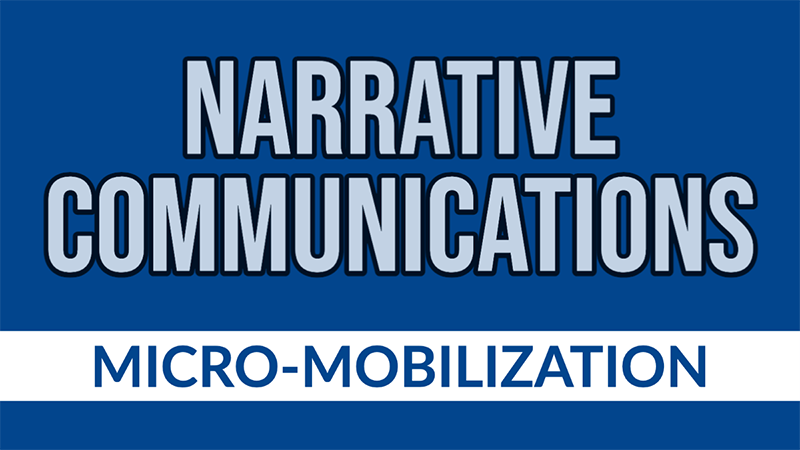The environmental legacies of Earth Day and Keystone XL highlight the impact of micro-mobilizations
May 10, 2022

By Derek Moscato, Western Washington University
The recent occurrence of Earth Day has once again fostered important national discussion about the energy economy and its implications for climate change and our ecological future. But even as media discourses focus on the fertile ground of shifting public opinion, environmental organizations must also remain focused on issues of stakeholder recruitment, retention, and engagement. Figuring out how to break through the clutter of political rhetoric, promotional culture, and civic disinterest makes public interest communication and outreach to everyday citizens a complex undertaking.
The winning of hearts and minds is contingent not only on mass appeals that involve policymakers and opinion leaders. It also counts on a socio-cognitive process that defines issues such as wildlife conservation, climate change mitigation, and the protection of land and water for citizens within and proximate to an organization.
That’s why Earth Day organizers don’t just focus on national discourses. Much of the Earth Day activity on April 22 focused on the hyperlocal: neighborhood tree-plantings, wetland habitat restoration, and clean-ups of urban greenspaces.
Earth Day organizers understand that environmental change doesn’t just happen in the abstract. It must involve citizens from all walks of life, connecting them to the ground underneath them. A well-known case in point that draws from this ethos comes from Nebraska, where the Keystone XL Pipeline saga has served as a proxy for the battle over fossil fuels and petroleum infrastructure. While the pipeline controversy has drawn in political and environmental voices from the national and regional levels, it was the state-based Bold Nebraska that made Keystone XL an issue unique to heartland culture and heritage.
My recent research, supported by the Page Center, explored the specific micromobilizations developed by Bold Nebraska over the course of several years in order to generate broad support at the grassroots level. It turns out that direct organizational engagement with Nebraska’s farmers, ranchers, and tribal community members helped to construct the overarching metanarrative of rural pipeline opposition.
This metanarrative, emphasizing an alliance of local citizens, established rural pipeline activism as a symbol of Nebraska’s future, one that pitted a grassroots protest movement against the encroachment of petroleum infrastructure, corporate investment, and government imposition.
Rhetorical micromobilizations such as the construction of a clean energy barn and a protest against the TransCanada corporation at a Nebraska Cornhuskers football game helped to define pipeline opposition even as it set the stage for ongoing appeals about protecting the state’s ecological, tribal and agricultural heritage.
The ongoing engagement of movement members was key here. Other micro-mobilizing events, like Bold Nebraska’s planting of the Seeds of Resistance at the Tanderup family farm in Neligh, Nebraska, produced compelling social-psychological outcomes by forging necessary social bonds between groups and individuals while highlighting individual efficacy.
In short, the corn planting helped connect local citizens to an ecological issue with national and global implications. This transformation occurred through the planting of traditional crops, and the storytelling and collaboration that went along with it.
As strategic, rhetorical appeals, these micro-mobilization events and processes allowed individual participants to connect their personal engagement to the larger story of pipeline opposition and the fight against fossil fuel infrastructure projects.
For public interest communicators, these findings provide a reminder that the deepening of social bonds and the opportunity for authentic participation within an organization or movement is critical to supporting the larger, external narratives that gain traction with policymakers and effect long-lasting change. The legacies of Earth Day and the Keystone XL saga serve as timely reminders that environmental advocacy is a citizen-centric enterprise driven by individual passion, collective engagement, and a shared vision for humanity.
This project was supported by the 2019 Page/Johnson Legacy Scholar Grant on narratives.

